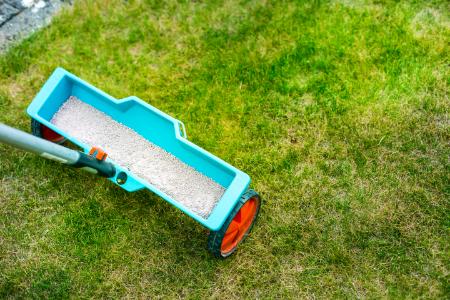3 Reasons Your Yard Needs Fertilization

Fertilization stands as a cornerstone in nurturing a vibrant and healthy lawn, playing a pivotal role in providing essential nutrients that grass needs for optimal growth. Fertilizers replenish crucial elements such as nitrogen, phosphorus, and potassium, addressing any deficiencies in the soil and promoting lush, green turf. Beyond mere aesthetics, a well-fertilized yard exhibits increased resilience to environmental stressors, including pests, diseases, and varying weather conditions. Regular fertilization fosters robust root development, enabling grass to better absorb water and nutrients, leading to a more resilient and visually appealing lawn.
The importance of yard fertilization extends to the overall environmental impact and sustainability of outdoor spaces. Well-fertilized lawns contribute to soil health, preventing erosion and promoting microbial activity that benefits the entire ecosystem. The enhanced density of grass resulting from proper fertilization also reduces weed growth, minimizing the need for herbicides and creating a more sustainable, low-maintenance landscape. As a key component of comprehensive lawn care, yard fertilization not only enhances the immediate beauty of your outdoor space but also establishes a foundation for long-term environmental responsibility and the well-being of your lawn.
Nutrient Replenishment
Fertilization is essential for nutrient replenishment in the soil, providing plants with the vital elements they need for healthy growth. By introducing fertilizers containing key nutrients like nitrogen, phosphorus, and potassium, gardeners ensure that their plants have access to a well-balanced diet. This process fosters robust root development, vibrant foliage, and overall plant vitality, contributing to the long-term health and aesthetics of the landscape.
Efficient nutrient replenishment through fertilization is crucial for correcting deficiencies in the soil and promoting optimal nutrient levels. It allows for targeted supplementation, addressing specific nutrient requirements based on soil test results and the needs of different plant varieties. This precision in nutrient application not only enhances the immediate health of the plants but also prevents nutrient imbalances that can lead to stunted growth, discoloration, and increased susceptibility to pests and diseases.
Increased Resilience
Fertilization plays a key role in bolstering the increased resilience of plants and lawns against various environmental stressors. Adequate nutrient levels supplied through fertilization contribute to the development of strong and resilient plants that are better equipped to withstand challenges such as extreme weather conditions, pests, and diseases. The improved vigor resulting from proper fertilization enhances the plant's ability to recover from stress and bounce back to a healthy state.
In addition to nutrient provision, yard fertilization promotes increased resilience by fostering deeper root systems. Well-fertilized plants develop robust roots that enhance water and nutrient absorption, making them more resistant to drought conditions. This strengthened root structure also provides stability to the plants, reducing the risk of damage from wind, heavy rain, or other environmental factors. Overall, increased resilience through proper fertilization is a vital component in maintaining a durable and flourishing landscape.
Soil Health and Sustainability
Fertilization significantly contributes to soil health and sustainability by enriching the soil with essential nutrients. The regular application of fertilizers enhances soil fertility, ensuring that it remains a nutrient-rich environment capable of supporting robust plant growth. This process also promotes microbial activity in the soil, fostering a healthy ecosystem that benefits both plants and the broader environment.
Yard fertilization plays a role in preventing soil erosion, as a well-fertilized lawn with dense vegetation helps anchor the soil and reduce the risk of runoff. The balanced nutrient content in the soil resulting from fertilization supports diverse microbial communities that contribute to nutrient cycling and organic matter decomposition. By embracing fertilization practices, gardeners actively contribute to the long-term sustainability of their outdoor spaces, creating landscapes that thrive while minimizing the environmental impact associated with soil degradation and nutrient loss.
Take the first step toward a lush and resilient outdoor space - schedule a professional fertilization service today and witness the difference it makes in the health and beauty of your lawn!